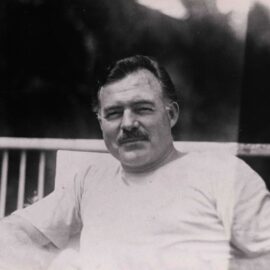

This article is an excerpt from the Shortform book guide to "On War" by Carl von Clausewitz. Shortform has the world's best summaries and analyses of books you should be reading.
Like this article? Sign up for a free trial here .
What is the relationship between war and politics? If war is supposed to achieve a political outcome, why do military interests sometimes contradict political aims?
According to Prussian general and military theorist Carl von Clausewitz, war should be subservient to political policy. He argues that letting military interests shape political policy or giving the military latitude to take action outside of political policy is ridiculous because war is a tool of politics, not the other way around.
Keep reading for Carl von Clausewitz’s take on the nature of war.
The Essence of War
According to Carl von Clausewitz, war is a tool for advancing political interests, but that is its purpose, not its essence. What differentiates war from other means of pursuing a political objective? According to Clausewitz, it’s violence. Combat is the essence of war: When two nations or factions are at war with each other, their respective soldiers are trying to kill each other. If they’re trying to achieve a political objective by any means other than killing each other, then war is not the tool that they’re using.
Consequently, Clausewitz completely dismisses the idea of trying to make war less violent. Since war is violence, any attempt to make it less violent is delusional. By all means, find non-violent ways of achieving your objectives if you can, but if you must resort to war, then you must resort to violence.
He goes on to point out that even a “bloodless victory,” where the enemy retreats without firing a shot, still depends on your willingness and ability to engage in combat: Your enemy only withdraws because he has no hope of winning, or because the cost of winning would be unacceptably high. Either way, your capacity for violence is what drives your enemy to seek peace.
| Sun Tzu vs. Carl von Clausewitz on the Nature of War Just as Clausewitz and Sun Tzu disagree on the relationship of war to political policy, they also disagree on the essence of war. Clausewitz says the essence of war is violence, while Sun Tzu argues that violence is not the most essential element of war. Sun Tzu doesn’t explicitly say what he considers the essence of war, but he does discuss several things he considers more important than killing the enemy. One of them is creating dissension or other forms of instability within the enemy army and nation. This is because, in his view, killing enemy soldiers only provides a means of immediate survival, while destabilizing the enemy provides a means of winning the whole war. This is presumably because an army or nation that loses its internal cohesion or resolve isn’t capable of fighting a war, or at least not of fighting effectively. |

———End of Preview———
Like what you just read? Read the rest of the world's best book summary and analysis of Carl von Clausewitz's "On War" at Shortform .
Here's what you'll find in our full On War summary :
- Carl Von Clausewitz’s philosophical ideas about war
- Why defenders are responsible for most wars
- Why soldiers shouldn't sleep in tents






